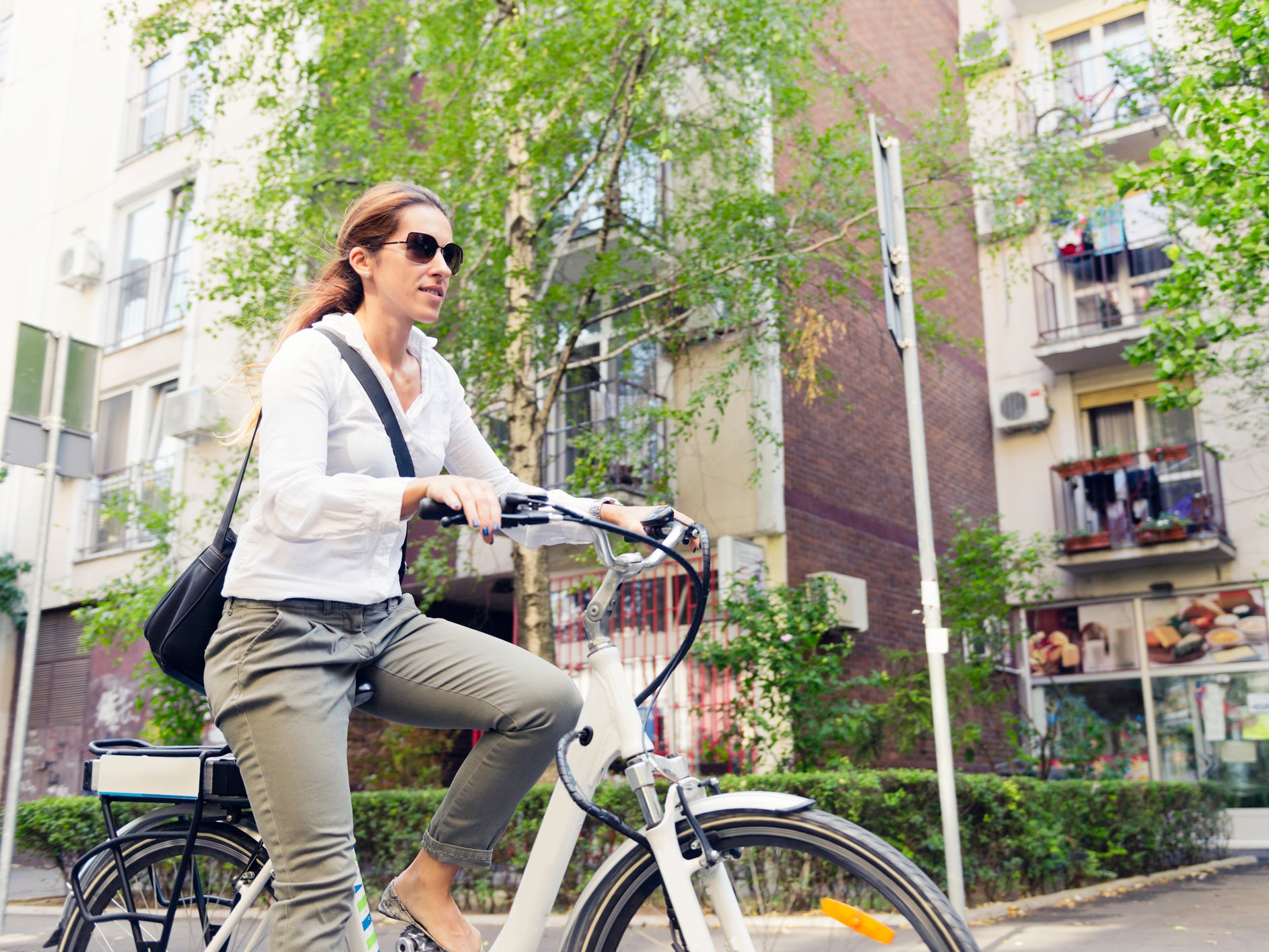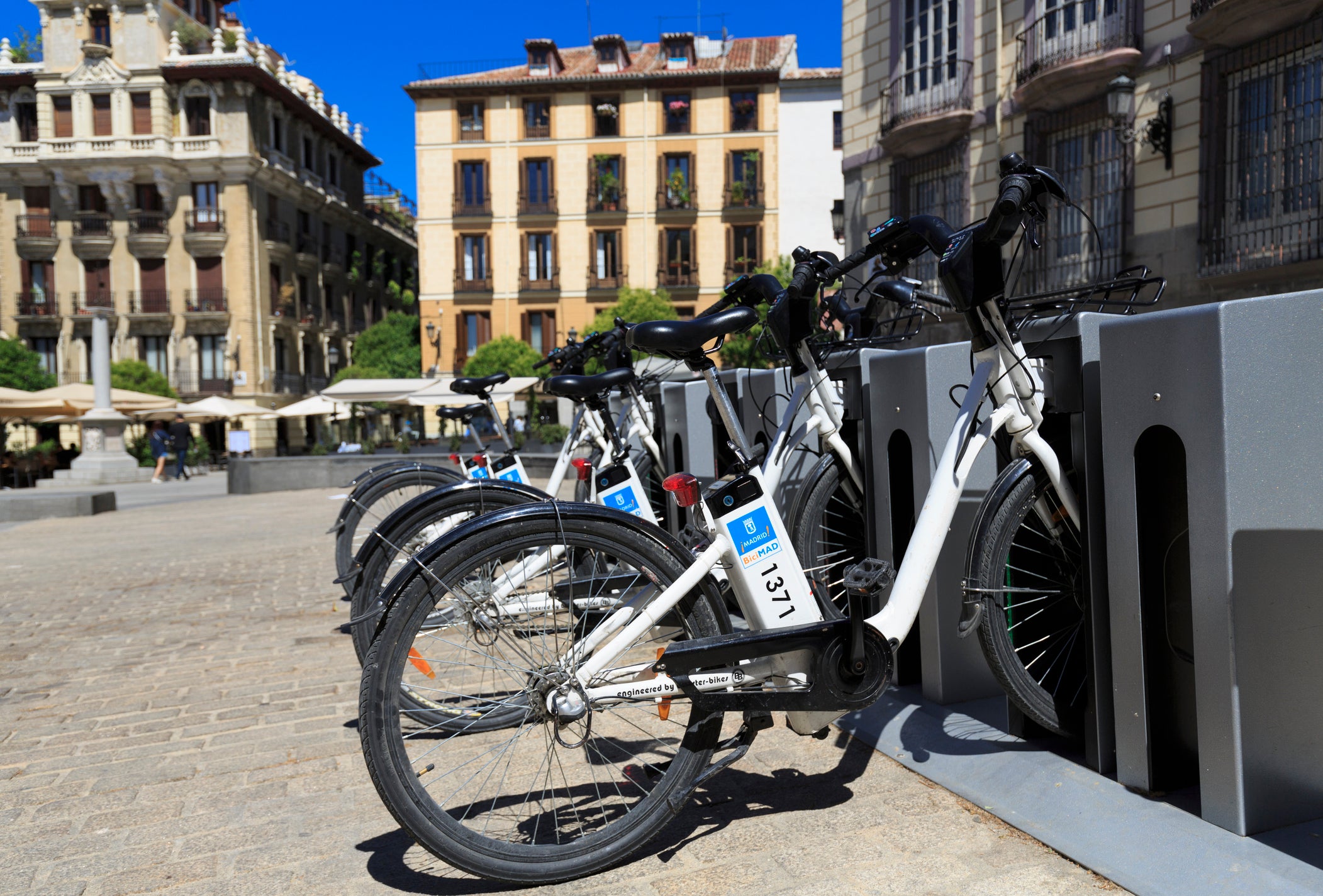Coronavirus: Swap cars for e-bikes to reopen UK, researchers say
Study calls for national cycle network linking towns and villages, and disincentives for drivers

Your support helps us to tell the story
From reproductive rights to climate change to Big Tech, The Independent is on the ground when the story is developing. Whether it's investigating the financials of Elon Musk's pro-Trump PAC or producing our latest documentary, 'The A Word', which shines a light on the American women fighting for reproductive rights, we know how important it is to parse out the facts from the messaging.
At such a critical moment in US history, we need reporters on the ground. Your donation allows us to keep sending journalists to speak to both sides of the story.
The Independent is trusted by Americans across the entire political spectrum. And unlike many other quality news outlets, we choose not to lock Americans out of our reporting and analysis with paywalls. We believe quality journalism should be available to everyone, paid for by those who can afford it.
Your support makes all the difference.As commuters are urged not to use their cars and to also avoid public transport, researchers believe the government should be promoting the use of electric bicycles to help people return to work after lockdown.
The recommendation comes as new government guidance for local authorities demands more space be provided for walking and cycling “within weeks” in response to the coronavirus outbreak.
Uptake of e-bikes could help cut carbon emissions in England by up to 50 per cent and provide a cheaper, safer and more sustainable way for people to travel as lockdown is eased, researchers said.
There is a “clear correlation” between air quality and levels of deaths from Covid-19, previous studies have found, leading governments to implement transport policies designed to remove polluting vehicles from roads and promote active travel.
The new study, produced by researchers at the University of Leeds‘ Centre for Research into Energy Demand Solutions (Creds), found that the greatest impact on emissions would come from the use of electrically assisted bicycles outside urban areas, while their use in low-income areas with limited access to public transport could help cut the costs of travel, improve mobility and enhance access to services and employment.
The report said e-bike use in the UK could be increased by a Danish-style strategic national cycle network, linking cities to towns and villages, bringing new transport options to people living outside urban areas and offering a safe way to make longer journeys than conventional cycles.
It also suggested providing e-bikes to NHS key workers, schemes in which people could share and trial e-bikes, and e-bike promotion in the Government’s Covid-19 economic recovery stimulus package.
The authors urged policymakers to find ways to incentivise the use of e-bikes to replace car journeys and said that replacing just 20 per cent of car use would mean four to eight million fewer tonnes of carbon emitted each year.
They recommended that e-bikes should be defined as a “strategically important” mode of transport within key transport initiatives in 2020 and their use incorporated into national and local carbon reduction programmes, travel plans and post-Covid initiatives to avoid increased car dependence.
Pilot programmes to test ways to incentivise e-bike use over cars should be funded and implemented over the next two years, focusing on schemes outside major urban centres, they said.

The researchers also recommended that people should be given disincentives to use cars excessively where alternatives exist.
The report said: “In this climate emergency we need to turn our thinking around.
“Policymakers need to move beyond the changes they think people would like and instead plan for a transport system which reduces its CO2 emissions as well as providing efficient, accessible mobility for all.”
Ian Philips, of the University of Leeds and Creds, who led the research, said: “The strategic potential of e-bikes as a mass-transport option has been overlooked by policymakers so far.
”The research began as a way to measure the potential carbon savings that e-bikes can offer, but as we emerge from the lockdown, e-bikes can be part of the solution to getting people safely mobile once again.
“We’re recommending that governments across the UK should find ways to incentivise e-bike use to replace car journeys.
“As well as lowering carbon emissions from transport, e-bikes have the potential to improve the mobility options for people and communities at risk of transport poverty.”
A Department for Transport spokesperson said: “E-bikes are a great way to travel and can help more people take up cycling, especially those who have longer or more challenging journeys.
“Our Cycle to Work scheme means people can get a big discount off a new e-bike.
“On top of this, we are also looking to create a green legacy by investing record amounts to encourage more people to cycle or walk.”
The publication of the research comes as British Cycling said “up to 14 million UK adults are ready to get on their bikes and spark a transport revolution, if towns and cities follow Department for Transport guidance and quickly implement new temporary infrastructure.”
A report produced by British Cycling and HSBC indicates 28 per cent of the UK adult population – over 14 million people – currently cycle less than once per month, but would like to cycle more regularly.
The organisation said increasing cycling by just 3km per day and walking by 1km amongst individuals in urban centres in England and Wales could result in £17bn in savings to the NHS over 20 years.
Additional reporting by PA
Join our commenting forum
Join thought-provoking conversations, follow other Independent readers and see their replies
Comments